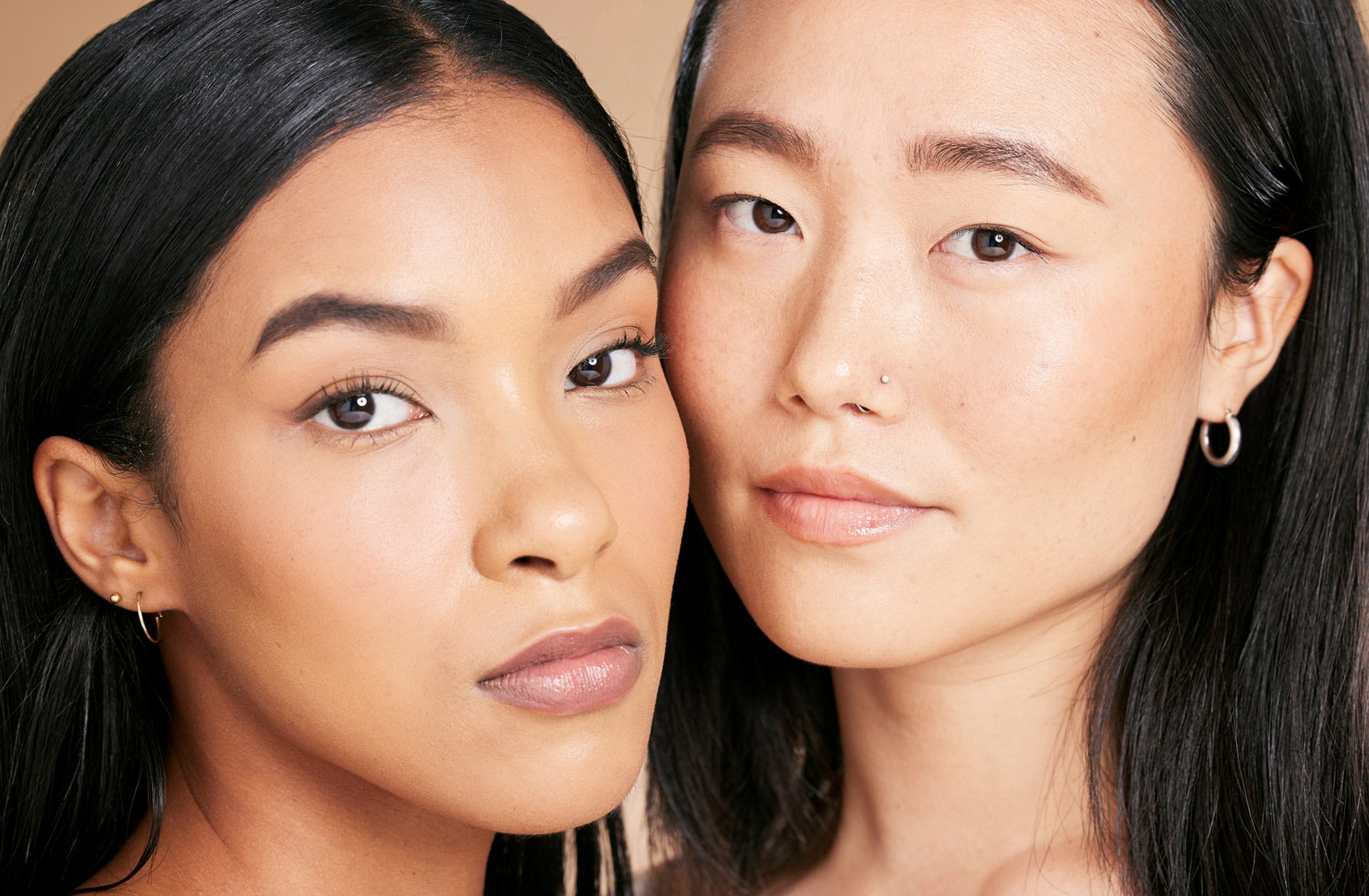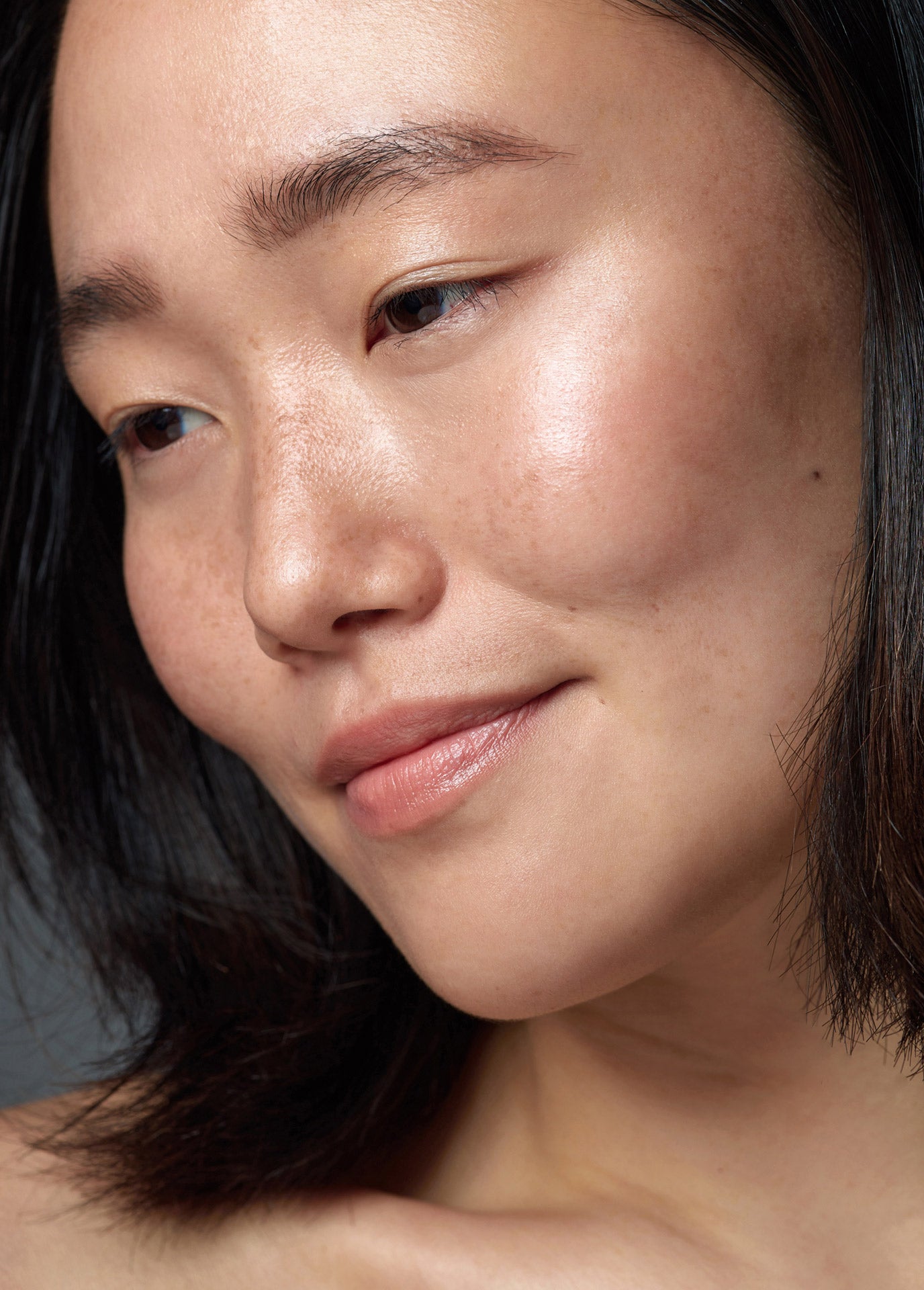You’ve probably seen the term 'retinol' while browsing skin care products in your local drug store or big-box beauty retailer. It’s a popular ingredient in many anti-aging formulas, but there are some mixed messages out there regarding whether or not it’s truly beneficial.
One of the most common criticisms about retinol is that it dries out the skin. But is this true? Or a widely-held misconception?
Determining the truth simply by browsing the web or reading skin care product reviews can be challenging. Everyone has a different opinion and experience, and that's normal!
Your best bet? Referring to a trained and experienced dermatologist — like our Founder, Dr. Simran Sethi, who specializes in medical aesthetics for melanated skin, and is a practicing Internal medicine Physician (internist). She has taken the time to study the biology of the skin and how it responds to various ingredients. Dr. Sethi also has a rare experience of having applied her own clinical research and knowledge of skin renewal and skin barrier with darker skin tones to heal skin (acne, dark spots, etc etc)
Today we’re sharing her answer to the question, “Does retinol dry out your skin?” But first, let’s cover the basics:
What is Retinol?
Before we reveal the truth about retinol dryness, let’s clarify what retinol actually is. Retinol is a form of vitamin A that serves several biological functions within the human body, like aiding in cell reproduction, promoting healthy bone development, and contributing to strong eyesight. Most people can absorb the required amount of retinol through the food they eat. Cheese, fish, and sweet potatoes are a few foods that contain high levels of retinol.
What is Retinol Used For?
In the skin care industry, retinol is used to achieve several desirable outcomes, including:
-
Youthfulness
Retinol has been proven to stimulate the body’s natural production of collagen — a protein that’s found in the skin’s connective tissue, and that improves skin elasticity and fullness. For this reason, retinol is celebrated as one of the top anti-aging skin care ingredients. Its ability to plumpen a person’s complexion by diminishing the appearance of fine lines and wrinkles, makes it a miracle ingredient for anyone seeking to slow down the hands of time.
-
Exfoliation
Retinol’s ability to speed up the skin’s natural cell turnover process makes it a great addition to exfoliating cleansers. The more your skin’s cells replenish on their own, the less likely it will become clogged with bacteria and other debris, preventing breakouts and evening skin’s overall texture. Plus, evidence suggests that retinol slows sebum production, reducing oiliness and keeping pores perfectly pristine.
-
Radiance
There’s nothing more gorgeous than an all-natural glow, and retinol will help you achieve that. It has been scientifically proven to reduce the appearance of dark spots and discoloration, restoring a smooth and shimmery air-soft complexion.
Does Retinol Dry Out Your Skin
We’ve explained what retinol is and its purpose as a skin care ingredient. So, what about those rumors of retinol drying out skin? Are they true? Should consumers be concerned?
The short answer is: “Yes, it’s safe to use retinol cream on dry skin.”
But to adequately respond to the question, “Does retinol cause dry skin?” we’ll need to dive a little deeper. Here are the three key points to remember:
-
Retinol Causes Skin to Shed
As mentioned above, most retinol can stimulate the skin’s natural cell rejuvenation process, causing the thinnest, outermost layer of skin to flake and shed away. While it's common perception that in order for retinol to do its job, it needs to cause flaking or peeling, that, however, is not true. Using a lipid-rich retinol is effective enough and gentle on the skin barrier.
No matter what retinol you choose, always use a penetrative and skin barrier-protective moisturizer with it, and you'll see that your skin appears younger, healthier and radiant!
-
It Takes Time for Your Skin to Adjust to Retinol
First-time retinol users may experience mild irritation or shedding. This, again, isn’t cause for concern and shouldn’t be labeled as retinol dryness. It just means the retinol is triggering some type of cell turnover process, or your skin is acclimating to a new product. After using retinol several times, these symptoms should subside to the point where you barely notice them.
-
Moisturizing is a Necessary Step in Every Skin Care Routine
Whether or not you are using retinol-based products, moisturizing is an essential part of maintaining optimal skin health, or using a retinol– we advise moisturizing after applying retinol even if your skin isn’t prone to dryness, or using a retinol that contains nourishing lipids, always before bedtime, at least 3-4 days a week. It will prevent irritation and redness. Our skin is often more thirsty than we think! Applying a generous coat of moisturizer at night is the best way to guarantee a hydrated, just-came-from-the-spa glow (without the spa price tag!).
The bottom line? When used correctly, it’s highly unlikely you’ll get dry skin from retinol use. It’s just a matter of taking the proper precautions and understanding how retinol works. So, does retinol dry out your skin? No! But there is a small chance it can exacerbate existing dryness. In these situations, extra precautions are needed.
Tips to Avoid Retinol Dryness
Despite retinol being safe for skin care use, some people are prone to extremely dry skin or have severe sensitivities. For these individuals, it never hurts to take extra precautions when using more intense formulations, like those containing retinol, alpha-hydroxy acid, or glycolic acid.
If you have dry or sensitive skin and have wondered, “Can retinol dry out your skin?” we encourage following the steps below:
-
Check the Percentage
Different retinol-based products contain various amounts of retinol. It’s always best to double-check how much retinol is in a particular product before you purchase it. As a rule of thumb, 0.25% is a great starting point if you're very new to retinol, or if your skin doesn't necessarily show signs of aging or skin barrier repair. If your skin responds well and you want to progress to a higher dose, and/or if your skin needs more TLC, then it's completely fine to opt for a 0.5% or even 1% formulation.
-
Look for Calming Ingredients
This is another critical factor to keep in mind if you’re hesitant about using retinol for dry skin. The other ingredients in a formula often counteract the slight irritation retinol can cause. Look for a multi-lipid formula, or a soothing rose hip seed, or anti-inflammatory ingredients like green tea, and aloe vera. They will immediately start to soothe the skin and replenish moisture levels.
-
Start Slow and Let Your Skin Adjust
Retinol is highly effective, even in small amounts. There’s no need to slather creams or serums onto your skin. Instead, start with a pea-sized amount and target specific problem areas like under your eyes or along forehead frown lines. Then wait and see how your skin responds! Remember, you can always step up to a higher percentage formula, but you won’t be able to reverse unwanted effects if you start too fast, too soon!
Avoid Retinol Dryness with Skin by Dr. Sethi
You’re no longer scouring the web in search of answers to the question, “Is retinol drying?” But now there’s another question to consider: What retinol-based products should you use?
You don’t want to invest in just any dry skin retinol products. You want to invest in the best products for your needs.
Our Retinol Lipid Complex is carefully and expertly formulated at a 0.5% retinol content and prevents dryness, peeling and purging, while reducing the signs of aging. It’s potent enough to deliver photo-worthy results yet moisture-promoting enough to protect skin from irritation.
If you’re looking for a retinol-based formula that improves skin texture and leaves you feeling ultra-hydrated, this is the formula for you.
Plus, you can save 15% on your order by subscribing to our email list! Sensational skin and extra savings? What’s not to love?
Read more

Hyperpigmentation from acne is common. Find out post-inflammatory hyperpigmentation treatments & how to fade these dark acne marks. ✓ Learn more!

How to repair the skin barrier? This guide gives a breakdown of what a damaged skin barrier is and how to fix it. ✓ Read on and protect your skin barrier.

